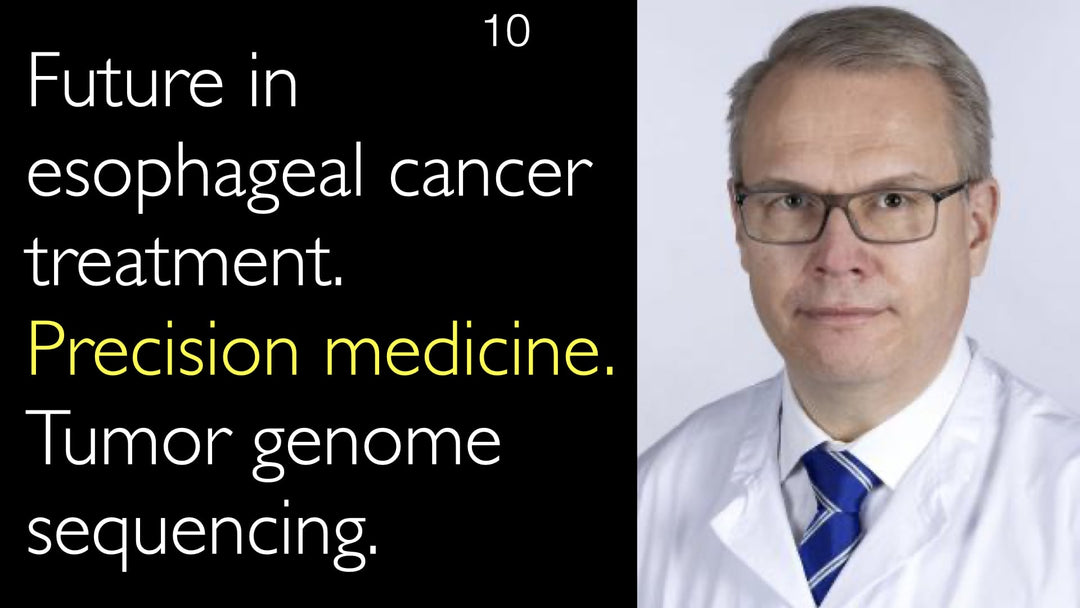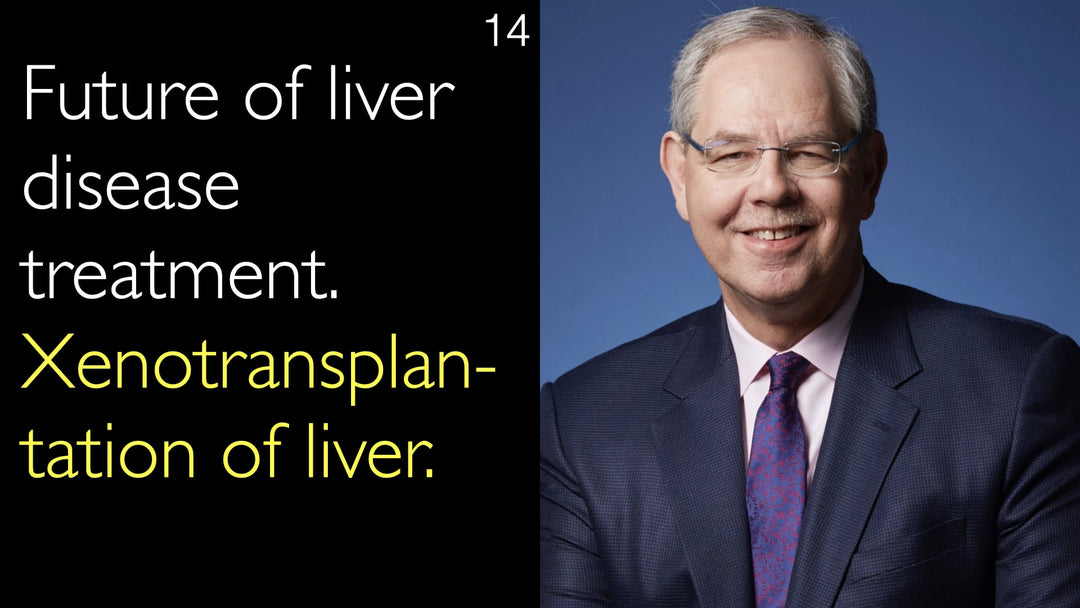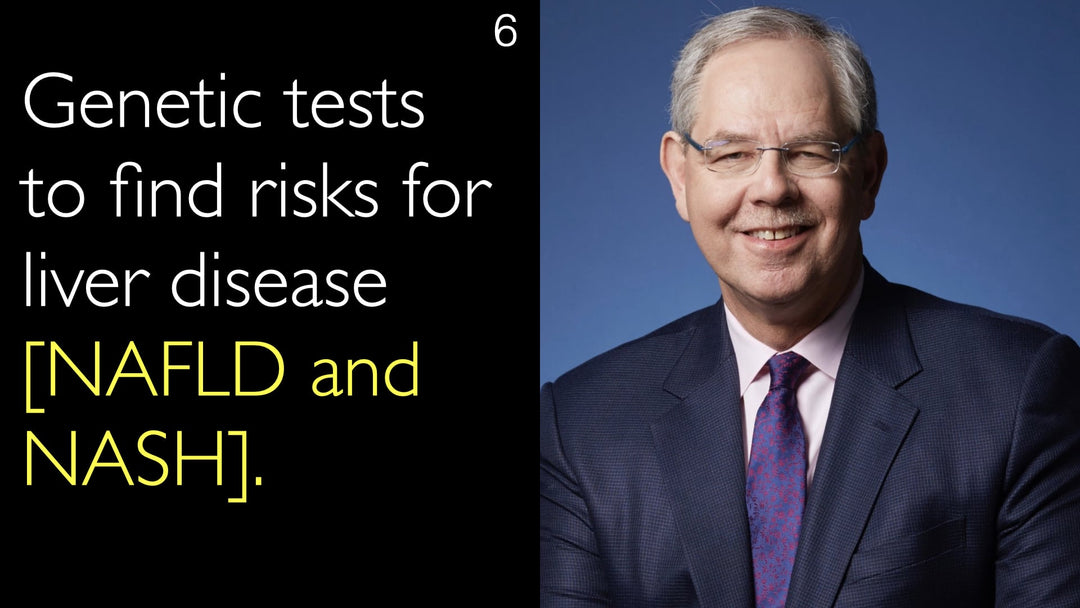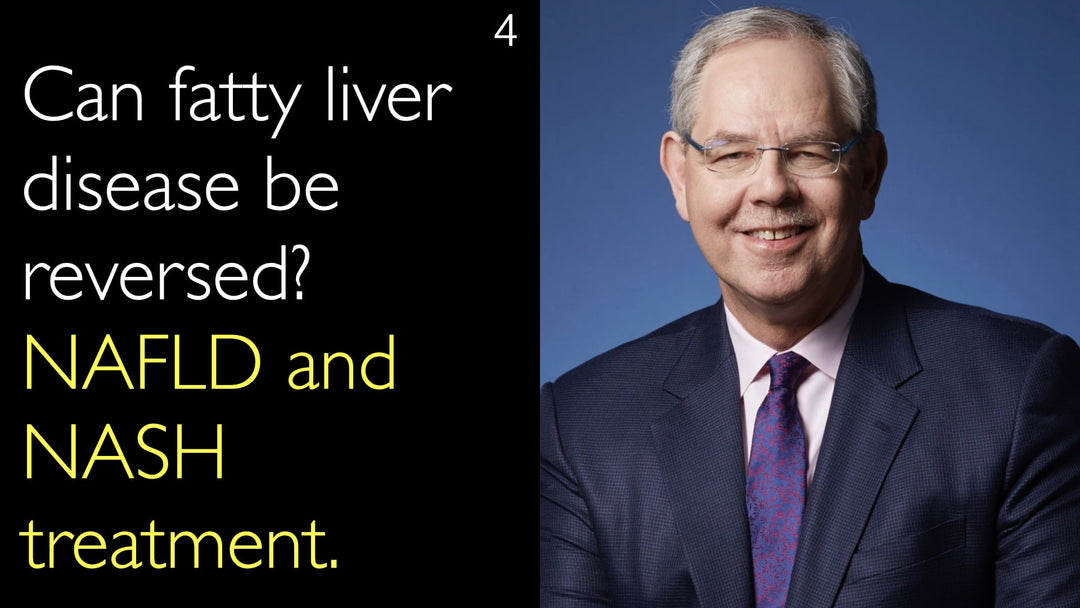Leading expert in esophageal cancer treatment, Dr. Jari Rasanen, MD, explains the future of precision medicine. He details how tumor genome sequencing will create individualized treatment plans. Dr. Jari Rasanen, MD, states this approach will make chemotherapy more efficient. He believes these new inventions will arrive within the next decade.
Precision Medicine and Genomic Sequencing in Esophageal Cancer Treatment
Jump To Section
- Precision Medicine is the Future
- Role of Tumor Genome Sequencing
- Creating Individualized Treatment Plans
- Impact on Chemotherapy Protocols
- The Role of Surgical Treatment
- Future Timeline and Expectations
- Full Transcript
Precision Medicine is the Future
Dr. Jari Rasanen, MD, identifies precision medicine as the key to the future of esophageal cancer treatment. This approach moves away from a one-size-fits-all model. It focuses on creating a highly personalized treatment strategy for each patient.
Role of Tumor Genome Sequencing
A critical component of this new approach is tumor genome sequencing. Dr. Jari Rasanen, MD, explains that biopsies will be used to create a complete genetic map of a patient's tumor. This genomic data provides the blueprint for designing the most effective upfront treatment.
Creating Individualized Treatment Plans
The genetic alterations found in a tumor directly inform the treatment plan. Dr. Jari Rasanen, MD, emphasizes that both neoadjuvant (pre-surgery) and adjuvant (post-surgery) therapies will be planned according to this genetic map. This level of personalization is what makes precision medicine so powerful.
Impact on Chemotherapy Protocols
Precision medicine will fundamentally change chemotherapy for esophageal adenocarcinoma. Currently, most patients receive the same chemotherapeutic drugs based on histology alone. Dr. Jari Rasanen, MD, states that future protocols will use genomic data to select the best possible chemotherapy regimen for each individual, drastically improving efficiency.
The Role of Surgical Treatment
While medical oncology will evolve, Dr. Rasanen believes the role of surgery will remain largely consistent. The surgical resection of the tumor is a cornerstone of treatment for localized esophageal cancer. Precision medicine will enhance the medical treatments surrounding surgery rather than change the surgical technique itself.
Future Timeline and Expectations
Dr. Jari Rasanen, MD, is excited about the near future of cancer care. He anticipates that new inventions and treatment options will emerge within the next 10 years. These advances will provide new opportunities and significantly improved outcomes for cancer patients, making individualized treatment the standard of care.
Full Transcript
Dr. Anton Titov, MD: Professor Rasanen, what is the future in esophageal cancer treatment?
Dr. Jari Rasanen, MD: The key will be so-called precision medicine, which means that the patients will have a better-individualized treatment plan. That's based on the genomic alterations in a patient's tumor.
Basically, in the future we will take biopsies from the tumor, and then we do a genetic map of the tumor. We are deciding the upfront treatment based on that map and also the treatment besides surgery that will be planned according to that kind of genetic maps, which make the medical treatment more efficient than it is nowadays.
Dr. Anton Titov, MD: Do you think that more sequencing of the tumor genomic side of the tumor would affect the way surgeries are done for esophageal cancer and lung cancer?
Dr. Jari Rasanen, MD: I don't know whether it's going to change the surgical treatment, but certainly, it will change the treatment with different chemotherapeutic drugs. Now the protocol for chemotherapy treatment is pretty much the same for everybody.
We just have to do a histological study of the tumor, and then we say that, okay, fine, we find that the tumor is adenocarcinoma of the esophagus. Then all the patients will get the same chemo treatment.
But in the future, we are also doing that kind of study in our institution, where we are trying to find the best possible chemotherapy treatment for each patient. I think that this kind of precision medicine is the key to improving the treatment results in the future.
The surgery will be pretty much the same. In my mind, I'm very excited about the future in that sense.
I think that we can expect from the future studies to give us new options in the treatment of different types of cancers. Like I said, individualized treatment for each cancer patient will be the key in the future.
That's something which I'm very much looking forward to see when it comes. I think that is near.
In the next 10 years, we will see new inventions that will give new opportunities to the cancer patients.







